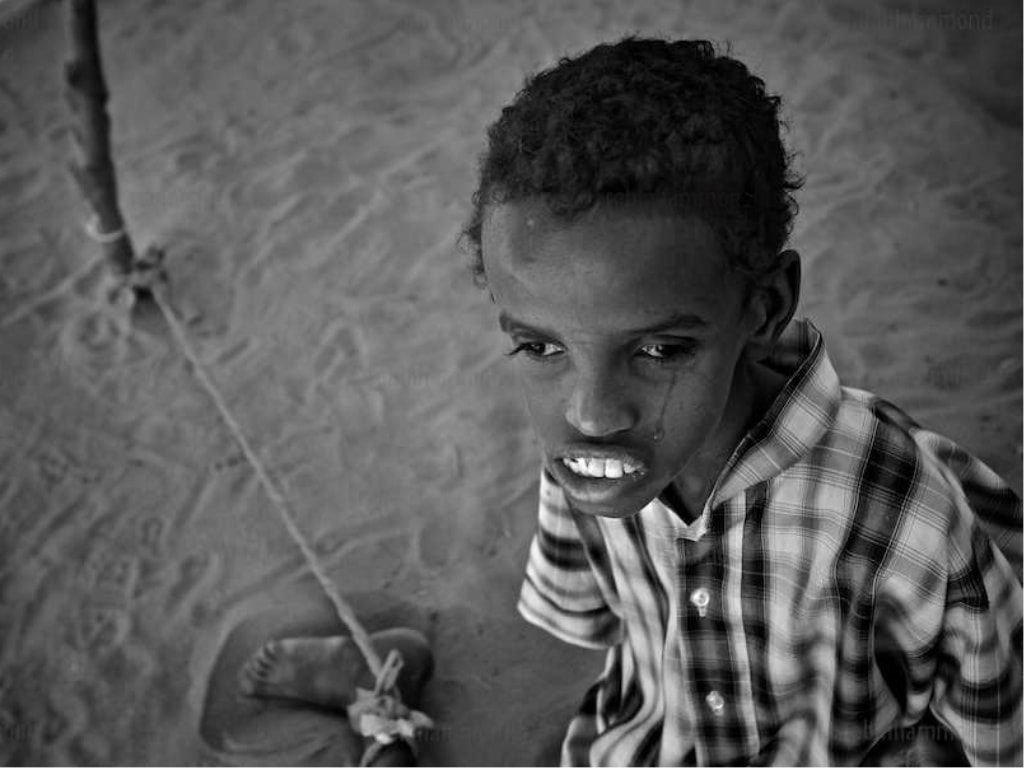 Ahmed Adan Ahmed (pictured), 13, was tied to a stick by his mother who did not know how to deal with his mental health problems. Ahmed Adan Ahmed (pictured), 13, was tied to a stick by his mother who did not know how to deal with his mental health problems. Prolonged conflict and instability have impacted on the mental and psychological well-being of the Somali people. It is estimated that one in three Somalis has been affected by some kind of mental illness, a prevalence which is higher than in other low-income and war-torn countries. According to the Word Health Organization, as of 2017 there were only five mental health centers in the whole of Somalia, with just three psychiatrists working at those facilities. Mental health has been an underfunded and neglected sector in Somalia with lack of funds due to poor allocation of resources by the donor community as well as by the public health local authorities. The entire burden of the mentally ill is left to the family and thus to the local communities, causing a cost to the whole society in terms of development and resources. Cultural Stigma Related to Mental Illnesses Many Somalis with mental illness are socially isolated. The pain of this isolation is felt intensely because Somali culture is traditionally communal and family oriented. While a person with mental illness may be ostracized from the community, their fear of stigma may be even more powerful. Whether the ostracism is created by the community or self-imposed due to anticipated negative responses, the social isolation creates a profound worsening of the mental illness. This social isolation can be very disorienting and can make the process of healing very difficult. In fact, even without prior mental health problems, isolation from the community alone can contribute to the development of depression. The situation of the mentally ill people is worsened by the fact that Somalis believe that once a person becomes mentally ill, he/she will never recover. A Somali proverb says that a mentally challenged person can only improve but never recover (nin waashay wuu ladnaaday mooyee wuu bogsaday maleh). ISIR Consulting works to achieve specific results for our clients - results that ultimately improve people's lives. 21/11/2018 02:21:08
Mental illness in Somalia is a chronic problem, immediate attention ad care must be given to these helpless patients. Comments are closed.
|
ISIR ConsultingWe offer a wide range of services to clients in helping tackle, and address transition and development dilemmas, turning challenges into opportunities and engaging local communities to develop homegrown solutions to threats and challenges. Archives
December 2021
Categories |
Isir Consulting | All Rights Reserved | Designed by DreamBuilders Website Design

 RSS Feed
RSS Feed